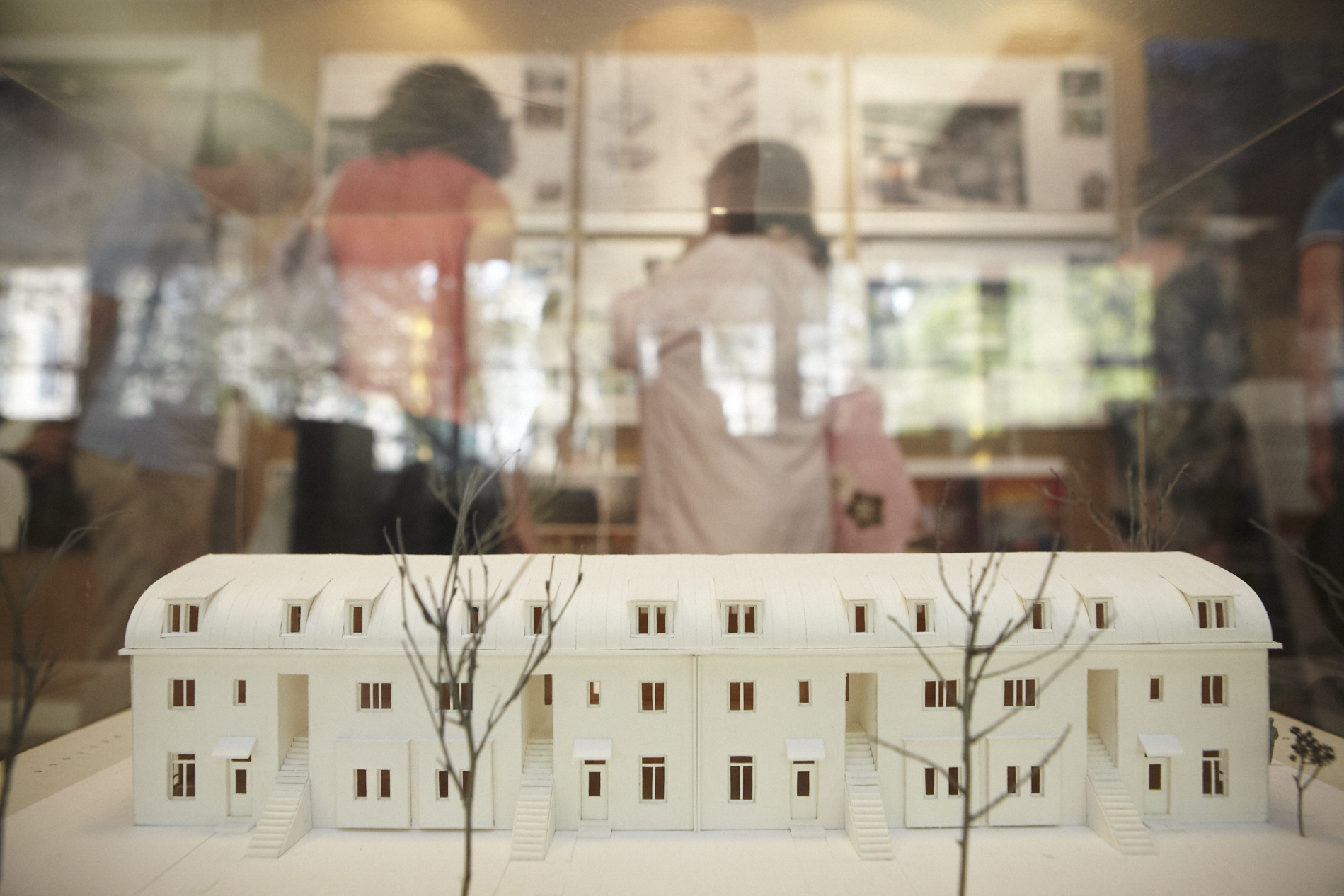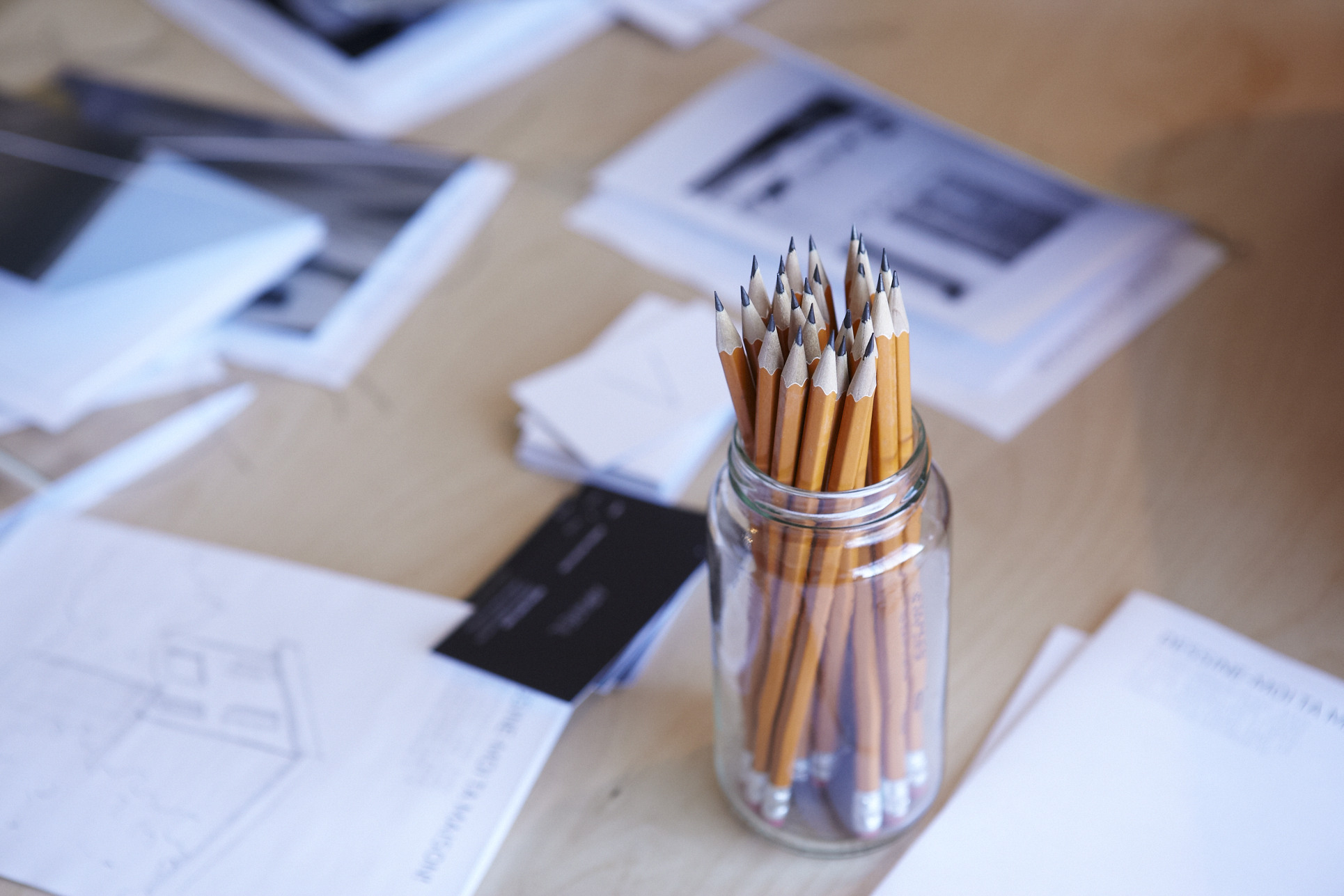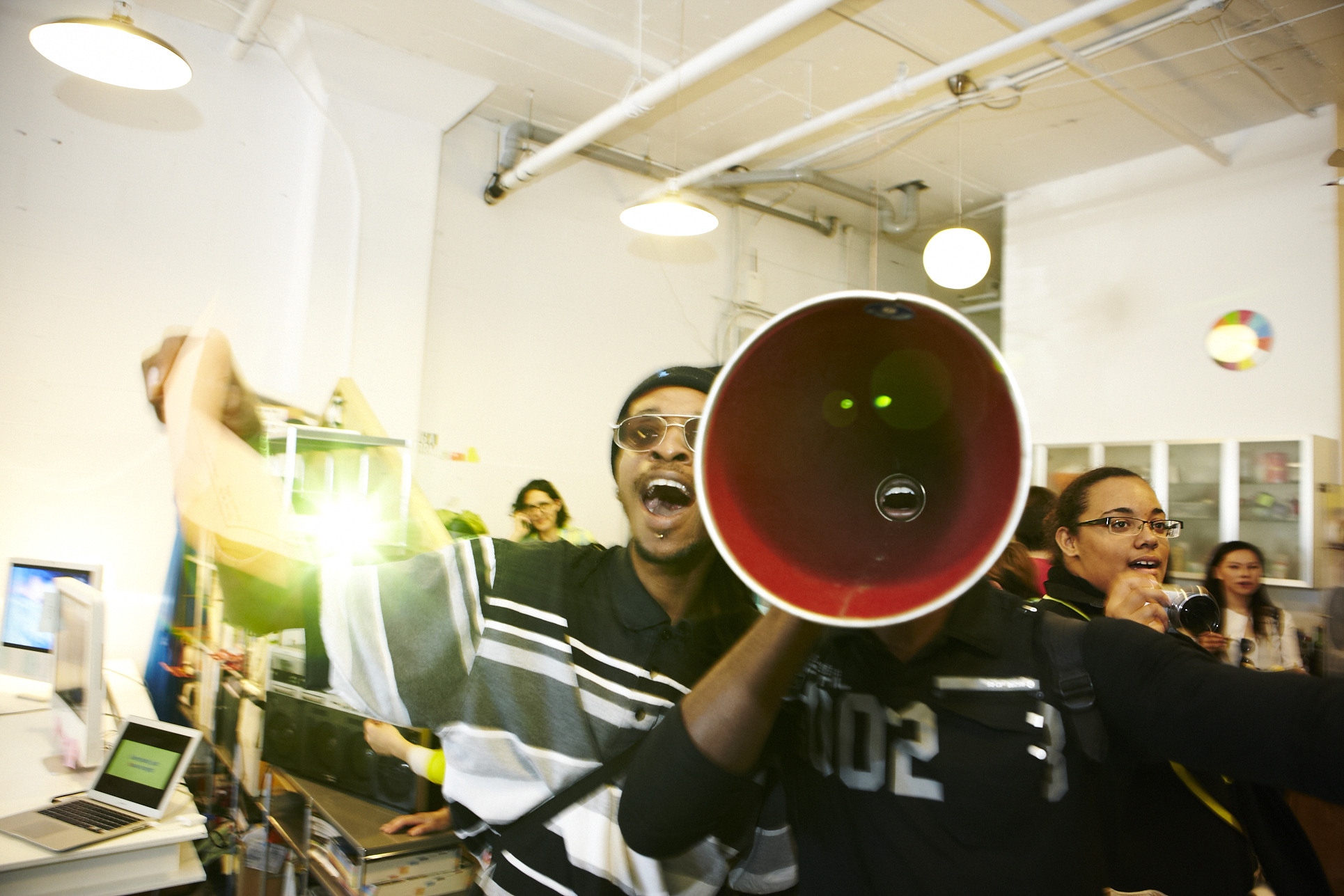One year after adopting the Montréal Agenda 2030 for Quality and Exemplarity in Design and Architecture, Montréal is launching a call for proposal aimed at raising awareness, educating, and guiding Montrealers in implementing the principles of quality, sustainability, and resilience in design and architecture. A total of $400,000 is being allocated for organizations to support forward-looking and foundational projects, and for businesses to develop innovative tools.
Deadline: April 13, 11:59 p.m.
The call for proposals is intended to develop a stronger design culture in Montréal by:
- raising Montrealers’ awareness of the importance of design and architectural quality for all,
- stimulating their interest in design and architecture,
- improving their knowledge of and critical thinking about these matters,
- fostering a better understanding of the issues of resilience and the green transition when it comes to planning, designing, and building urban amenities.
Coordinated by the Bureau du design, the call for proposals is part of Area 3 of the Montréal Agenda 2030 for Quality and Exemplarity in Design and Architecture, which focuses on awareness-raising and training of stakeholders in the shift to design quality processes. It is supported by the ministère de la Culture et des Communications du Québec under an agreement between Montréal and the Québec government (Entente 2018-2021 de développement culturel de Montréal).
Call for projects and awareness activities
Non-profit organizations (NPOs) and institutions seeking to help strengthen Montréal’s design culture are invited to submit a funding application for a project or activity in keeping with their mission or with the objectives and audiences targeted in this call for proposals. Selected NPOs may receive a minimum of $25,000, to be used for:
- funding up to 100% the development and implementation of their project or activity and/or,
- offering technical support to Montréal businesses through awareness-raising activities and training, including support tools.
Examples of eligible projects and activities: (virtual or small groups) guided tour programs, open houses, workshops, lectures, seminars, online training, mentoring, sponsoring, personalized or group support, information line, film, documentary, television program, podcast, awareness-raising campaign, newspaper column, etc.
Call for proposals for designing and implementing support resources and teaching tools
Businesses seeking to contribute their ideas and talent toward developing a stronger design culture may submit a service offer for a contract to design, develop, implement, and disseminate support resources or teaching tools for audiences targeted by this call for proposals. Proposals must meet the stated objectives and benefit Montréal and its citizens. Businesses that submit proposals may be eligible for a contract by mutual agreement of up to $100,000 (including taxes).
Examples of eligible tools and resources: reference guides and documents (e.g., exemplary achievements), popularization tools, tutorials, design and architecture knowledge assessment quizzes, digital directories, FAQs, instructional videos, development of a web/mobile app, webinars, case studies, project quality assessment frameworks, critical path for a design or architecture project, creative process mapping, etc.
Proposals involving the following are not eligible:
- trade shows or exhibitions,
- awards or grant programs,
- pandemic-related business support measures aimed at responding to financial issues linked to ongoing operations or workforce recruitment needs.
The proposed projects and activities, and support resources and teaching tools must be designed and created for the target audiences below and offer solutions to the issues mentioned.
Citizens
- People who wish to take part in participatory budgeting and other forms of public consultations on land-use planning, including citizen cocreation or coprogramming processes. Whether it be for specific projects or for methods of developing the territory, producing, consuming, or living together, citizens have the power to influence decisions and actions made by the city that impact the quality of the environment and living spaces.
How can we raise awareness, educate, and support citizens so they are able to form enlightened and reasonable judgements as to the acceptability of a city development project in a manner that encourages quality, sustainability, and resilience?
- Construction, conversion, and demolition permit applicants. Just like demolition, construction and renovation incur costs and have impacts on the environment, health, the economy, and the quality of living environments. Before carrying out such work, citizens and contractors must obtain permits and make design choices and decisions on issues such as installing systems that improve energy efficiency, reducing potable water consumption, reducing resource consumption by reusing used materials or choosing materials with recycled content, reducing harmful emissions by choosing less-polluting materials or favouring locally produced materials to reduce transportation costs and stimulate the local economy.
How can we raise awareness, educate, and support citizens and contractors to encourage responsible choices and ensure that their projects contribute to Montréal’s green and social transition?
- Citizens sitting on urban planning advisory committees. Urban planning advisory committees (comités consultatifs d'urbanisme—CCUs) are tasked with studying and making recommendations about urban planning and development proposals. Committee members are primarily involved in examining applications for minor exemptions; comprehensive development plans; conditional uses; along with certain zoning issues; site planning and architectural integration programs; and specific construction, alteration or occupancy proposals for an immovable. For each application submitted, the CCU must make recommendations to the borough council for improving the proposals. The committees’ makeup varies from borough to borough but generally includes resident citizens and elected officials.
How can we raise awareness, educate, and support non-specialist members of these committees to ensure high quality, responsible, and long-lasting development for current and future generations?
- Municipal elected officials. Montréal’s primary decision-making body is the municipal council. It approves budgets, passes bylaws, establishes grant programs, and signs government agreements. It is made up of 65 elected members, including the mayor, who is also the mayor of Ville-Marie, the 18 other borough mayors, and 46 city councillors. The agglomeration council passes bylaws and authorizes expenditures related to services shared over the entire Island of Montréal, such as social housing, emergency services, and public transit. It is made up of the mayor of Montréal, 15 city councillors, and the mayors of 14 reconstituted cities. In adopting the Montréal Agenda 2030 for Quality and Exemplarity in Design and Architecture and its principles of sustainability, creativity, and innovation, Montréal’s elected officials have committed to taking advantage of design and architecture in all actions that affect the quality of living environments.
How can we raise awareness, educate, and support the elected officials engaged in defining the city’s future so that they are able to work with Montréal designers and architects in building a resilient city that promotes the health and well-being of all and that is equitable and inclusive, ecologically responsible, prosperous, appealing, and culturally fulfilling?
Professionals in design and architecture
- People who organize design and architecture competitions, workshops and design panels. Because they are stringent and effective processes, competitions, workshops, and design panels make excellent decision-making tools. They enhance project quality and optimize implementation conditions. Professional advisors tasked with preparing framework documents and overseeing the fairness and impartiality of these processes are also the preferred intermediaries with the various stakeholders. Montréal has held nearly 60 competitions, workshops, and panels over the past 20 years and will hold more in the future. To this end, the city must be able to call upon a deep pool of designers and architects who are trained and skilled in organizing competitions, workshops, and panels.
How can we develop this area of knowledge and expertise for the benefit of Montréal municipal departments and boroughs in holding competitions, workshops, and design panels that are challenging and appealing to the best candidates but that also encourage emerging talents?
Non-profit organizations legally constituted under Part III of Québec’s Companies Act or the Canada Not-for-Profit Corporations Act, associations constituted under the Civil Code of Québec, cooperatives, solidarity cooperatives, non-profit foundations or trusts, and public organizations (schools, universities, research centres, school boards, or other) are eligible to receive funding from this call for proposals provided they:
- carry out their non-profit operations on the territory of the urban agglomeration of Montréal,
- are not in default with the Registraire des entreprises du Québec or under any other governmental law,
- are in good standing with the various municipal departments and boroughs of Montréal,
- are free from any conflict of interest (a director or trustee is in a conflict of interest when they are able to further their personal interests, or those of others, rather than the interests of the organization),
- are free from any related-party transaction (a related-party transaction, such as any exchange [monetary or non-monetary] between the NPO, an NPO employee, or a board member and a directly or indirectly related person or corporation),
- demonstrate sound financial management (no deficit or rulings against the organization).
Exceptions: commercial development corporations and PME MTL areas are not eligible for either part of this call for proposals.
Businesses are eligible to receive service contracts under this call for proposals provided they:
- do not appear on the register of enterprises ineligible for public contracts (Registre des entreprises non admissibles aux contrats publics—RENA),
- do not appear on the Montréal’s list of companies with unsatisfactory performance (Liste des firmes à rendement insatisfaisant),
- do not have, at the time the contract is awarded, a current service contract with the Service du développement économique of over $25,000, or one that has ended in the past 90 days,
- have fulfilled the commitments of previous service contracts with other Montréal municipal departments or boroughs.
In selecting proposals, the city will be seeking a fair distribution and to achieve diversity of projects, activities, resources, and teaching tools for the target audiences.
If there are too few eligible proposals or if they do not meet the specified criteria, the city may forgo awarding the entire $400,000 allocated for this call for proposals. For the same reasons, it may also decide to transfer funds not used for one stream to the other. In all cases, the city may grant less than the initially requested or required funding (stream 1) or professional fee (stream 2) in the proposal by suggesting mutually agreed upon changes.
The selection committee is composed of Montréal municipal employees (Bureau du design, Service du développement économique, Service de la culture, Service de l’urbanisme et de la mobilité, and one borough) and staff from the ministère de la Culture et des Communications.
The process will involve five steps:
1. Eligibility
The Bureau du design will verify the eligibility of organizations and businesses before evaluating the submissions based on the mandatory criteria to determine whether they merit more thorough analysis.
2. Analysis
The committee will examine the eligible proposals based on the criteria listed below and create a list of proposals that will move on to the next step—the interview.
3. Interview
Organizations and businesses invited to an online 30 minutes interview will be given an opportunity to present their proposal orally and interact with selection committee members by answering more detailed questions or by reframing certain aspects of their proposals to foster a better tie-in with the stated goals, criteria and budget.
4. Final selection
After the interviews, the committee will make its final selection and issue recommendations for funding distribution and service contract amounts. Organizations and businesses will be informed of these recommendations, after which they may decide to move on to the next step.
5. Agreements and approvals
For each selected proposal, an agreement will be signed between the city and the organization or business. The agreements, whether for funding or service contracts, will be submitted for approval by the relevant decision-making body, after which the work may begin. These formalities are expected to take at least four to eight weeks.
Relevance
All proposals must:
- fulfill the objectives set out in this call for proposals,
- address one or more of the target audiences and address the issues raised,
- offer a solution that is available to the target audience(s) free of charge or at minimal cost,
- be achievable in the short or medium term (no later than the end of 2022),
- be adapted for or consider pandemic-related issues and public health regulations.
Content
All proposals must include all information required to evaluate the assessment and feasibility criteria of the project, activity, support resource, or teaching tool, along with any necessary legal documents
Creativity and innovation
The proposals should be creative and demonstrate innovation (new ideas, new ways of doing things, creative adaptations to pandemic-related issues, etc.)
Reach and scope
The proposal should:
- present proposed and potential applications in the short and medium term (1–3 years),
- specify which target audience(s) it addresses,
- have a fixed duration, with possible recurrence, replicability or continuity,
- potentially stand alone (able to be carried out independently of other projects or conditions such as city financial help )
- include a distribution or dissemination strategy.
Capability
The organization or business must demonstrate its ability to carry out the majority of the project, activity, support resource or teaching tool by providing:
- examples of previous achievements;
- the makeup of the in-house team (e.g., combined skills and specialties);
- the competencies and experience of the project lead;
- external contributors, partners, network, and any other resources involved;
- an analysis or consideration of the current context (pandemic, staffing, remote working, etc.).
Financial requirements
Budget and costs must be:
- detailed,
- realistic,
- include contributions from the organization and other partners or collaborators if such.
Launch of call for proposals: March 3, 2021
Online information session: March 24, 10 a.m. to noon
- Submission deadline: April 13, 11:59 p.m.
- Proposal analysis: April 14-15–16
- Interviews: week of April 19
- Final selection: April 23
- Preparation and signature of agreements: week of April 26
- Approval by various bodies and start of work: May to August
- Project follow-up: continuous, through the end of 2022
- Submission of final program report: February 2023
Proposals must be filed online before April 13, 11:59 p.m. We recommend that you gather the required documentation first, then fill out the form and upload your files.
Non-profit organizations – You will need your registration number with the Ville de Montréal list of suppliers and the following documents:
- Description of organization (including past and achievements and ongoing projects) and project team, including the project lead (short bios that include education, experience, specialties or expertise, and past achievements)
- Description of proposed project or activity, project stages and timetable, distribution or deployment strategy, financial requirements of project or activity (project costs and funding), including the amount of funding requested from the city (5-10 pages)
- Copy of the organization’s letters patent or constituting instrument and an information statement on the association, if applicable
- Copy of the organization’s general bylaws
- Up-to-date list of the organization’s board members
- Board resolution naming and authorizing the signatory of the agreement
- Financial statements of the last two years (audited and passed at an annual general meeting or approved/passed by the board of directors)
Businesses – You will need your registration number with the Ville de Montréal list of suppliers and the following documents:
- Description of company (including past achievements and ongoing project) and staff, including the project lead (short bios that include education, experience, specialties or expertise) (max. 10 pages)
- Description of proposed support resource or teaching tool, project stages and timetable, distribution or deployment strategy, and service offer, including an assessment of fees and design, development, and production costs (5-10 pages)
- Up-to-date copy of the company’s registration with the Registre des entreprises du Québec.
Take part in to and online information session meet.google on March 24, between 10 a.m. and noon
Meeting id : meet.google.com/cch-rydn-ady
Phone : (CA)+1 438-317-4132 PIN : 275 773 923#
Send e-mail to @email or read the FAQ below.
Can a non-profit organization and a creative business join forces on a single proposal and receive funding under stream one and a service contract under stream 2?
Yes and no. Given the specific natures and legal parameters of the two funding streams, the organization and business must submit separate proposals. However, they may work together on their respective proposals such that each benefits and enhances the other without them being dependent on each other. Each proposal must meet the stated eligibility requirements and criteria on its own merits, and the organization and business must be in a position to carry out the majority of their project, activity, support resource, or teaching tool on its own.
Can an NPO submit more than one proposal and, if so, must they complete an application for each one?
Yes. An organization may submit multiple proposals if they target different audiences and concern different types of projects or activities. Each proposal must be submitted separately.
I have a contract or agreement currently underway with the city, but the work has been postponed or cancelled. Can I propose an amendment to my contract so that it fulfills the objectives of this call for proposals?
No. This call for proposals is aimed at new projects and has its own criteria and selection process.




